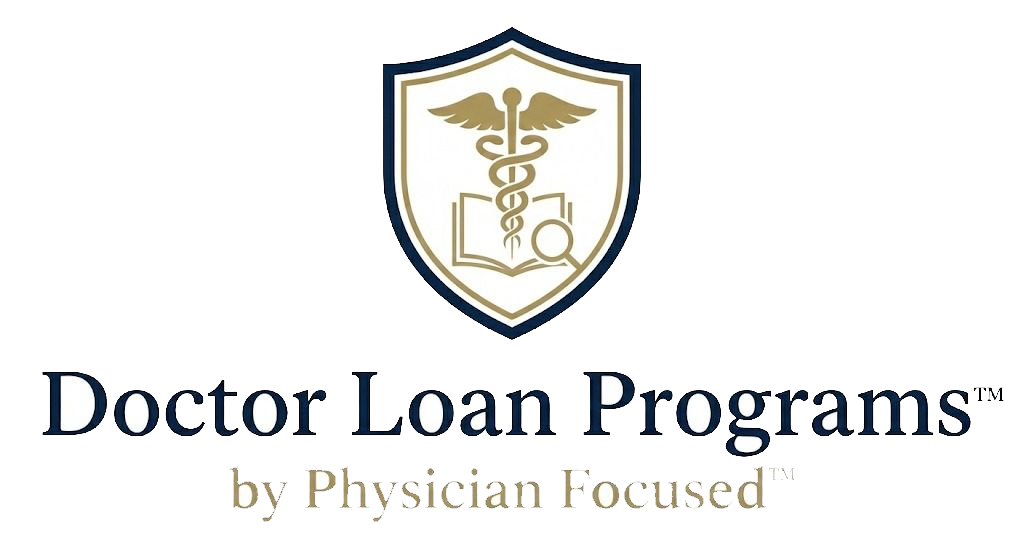Just as you’ve devoted years to your medical training, transitioning from residency to homeownership requires a well-informed strategy. This guide will empower you with crucial insights into financing options specifically designed for doctors. You’ll explore various loan products, eligibility criteria, and tips to navigate the home buying process efficiently, ensuring you make informed decisions that align with your financial goals. With the right knowledge in your corner, you can confidently step into the world of homeownership and secure the property that best suits your needs.
Navigating Loan Options: The Unique Needs of Physicians
As a physician, your financial landscape differs significantly from other professions, particularly due to the hefty student loan debt you may carry and your relatively high starting income. Lenders often recognize the barriers you face when pursuing homeownership, offering specialized loan programs that cater to your unique situation. Understanding these options can streamline your journey towards purchasing a home while ensuring you capitalized on the most favorable terms available.
Tailored Mortgage Products for Healthcare Professionals
Specific mortgage products exist to meet the needs of healthcare professionals like you. These include physician loans which often require no down payment and bypass private mortgage insurance, despite high student debt levels. Some lenders also consider future income potential rather than current earnings alone, facilitating a smoother approval process and making homeownership attainable shortly after residency.
Understanding Income Potential: How a Physician’s Earnings Impact Loan Eligibility
Your income trajectory as a physician can greatly influence your loan eligibility. Lenders typically factor in your expected salary post-residency, which often leads to higher qualifying amounts for loans, even if your debt-to-income ratio is tight from medical school expenses.
For instance, many lenders understand that a resident might not have a full-time income, yet their future earning potential can reach $200,000 or more shortly after completing training. This understanding allows them to provide more favorable terms and increased loan amounts than what might be available to other professionals in different fields. Consequently, leveraging this knowledge can empower you to negotiate better loan options tailored to your financial situation, paving the way toward securing a home that aligns with your career and lifestyle aspirations.
The Road to Pre-Approval: Securing Your Financial Foundation
Securing pre-approval for a mortgage is a fundamental step in your journey to homeownership. This process not only establishes your budget but also signals to sellers that you are a serious buyer. Pre-approval involves your lender evaluating your financial situation, including your income, credit score, and existing debts. By understanding how much you can borrow early on, you can confidently navigate the housing market and make informed decisions as you search for your ideal home.
Essential Documentation and Financial Preparedness
To obtain pre-approval, gather crucial documentation including your tax returns, pay stubs, bank statements, and any student loan information. Lenders will typically require proof of income and assets to assess your financial readiness. Clarity in your finances is key; if you pay off debts or improve your credit score, you can significantly enhance your borrowing capacity. Prepare your documents in a systematic manner; having everything organized will speed up the pre-approval process.
Working with Lenders Who Specialize in Doctor Loans
Choosing lenders who cater specifically to medical professionals can unlock unique advantages in the mortgage process. These lenders understand your financial journey, often considering your future earning potential rather than just your current financial status. They are skilled in customizing loan packages that fit your needs, offering competitive interest rates, and more lenient down payment requirements. By partnering with a lender familiar with the specifics of doctor loans, you’ll harness a more tailored approach that recognizes the nuances of your profession.
Working with lenders who specialize in doctor loans often means access to favorable terms and conditions that typical mortgage products may not offer. These lenders understand the rigorous training and often delayed high earnings associated with your career. Their programs might allow for lower down payments or no private mortgage insurance (PMI), making homeownership more accessible. Plus, they often simplify the application process, ensuring you can secure financing efficiently without feeling overwhelmed by additional requirements. Establishing a relationship with these specialists can be a game-changer as you transition from residency to becoming a homeowner.

Strategizing Your Home Search: Aligning Needs with Financial Reality
Your home search becomes much more effective when you align your specific needs with your financial reality. With a clear understanding of your budget, consider factors like proximity to work, schools, and lifestyle amenities that enhance your quality of life. This strategic approach ensures that you not only find a home that meets your practical requirements but also one that fits comfortably within your financial framework. Balancing aspirations with what you can afford leads to a satisfying purchase experience.
Defining Your Home Requirements: Location, Size, and Amenities
Begin by outlining your non-negotiables in terms of location, size, and important amenities. Consider the ideal commuting distance to your workplace, access to healthcare facilities, and the suitability of neighborhoods for families or personal preferences. Analyzing the number of bedrooms, bathrooms, and outdoor space will help narrow the search. Prioritize features such as a home office or a modern kitchen that add value to your lifestyle while remaining within your financial capacity.
How to Utilize Your Loan Options in the Housing Market
Utilizing your loan options effectively can amplify your buying power in the housing market. Various loans tailored for doctors, such as physician home loans, can offer flexible terms, low down payments, and reduced mortgage insurance premiums. Using these unique offerings can enhance your negotiating position while keeping monthly payments manageable. Consider working with a mortgage lender familiar with the specific needs of medical professionals to maximize your benefits.
Engaging the right loan options in the housing market allows you to approach your purchase with confidence. Physician-specific loans often permit you to finance up to 100% of the home’s value with no private mortgage insurance, paving the way for a smoother transition into homeownership. Leverage these specialized loans to access homes in desirable locations that may otherwise be out of your price range. This strategic financial planning plays a pivotal role in transforming your homeowner aspirations into reality while ensuring financial stability.
The Closing Process: From Offer to Keys in Hand
Reaching the closing process is an exciting moment in your home buying journey, marking the transition from an offer to ownership. This phase entails a series of actions that involve finalizing the sale, ensuring all contractual obligations are met, and preparing for the transfer of ownership. You’ll work alongside your real estate agent, lender, and sometimes a lawyer to navigate the final details, which culminate in you receiving the keys to your new home. With careful planning, you can minimize stress and set yourself up for a successful closing day.
Key Milestones and Timelines in the Closing Journey
Several key milestones define the closing process, typically lasting between 30 to 60 days following your accepted offer. After the seller accepts your offer, an inspection is often scheduled within a week. Shortly after, your lender will begin underwriting your loan, which usually takes several weeks. As you approach the closing date, the final walkthrough ensures the property is in the agreed condition, while the closing disclosure outlines all financial details before signing. Staying organized and on schedule is important for a smooth transition.
Navigating Common Pitfalls and Last-Minute Challenges
Last-minute challenges can arise during the closing process, often stemming from financial changes or unresolved issues from inspections. You may encounter delays related to appraisal discrepancies or buyer’s remorse, where you question your choices. Communication with your lender and agent is important to mitigate these risks. Be ready to address unexpected conditions in the sale contract and stay flexible as you proceed toward closing day.
Being aware of potential pitfalls can safeguard your journey to homeownership. For instance, if an appraisal comes in lower than expected, you might need to renegotiate with the seller or bring extra funds to the table. Similarly, if loan documents arrive later than planned, it can push back your closing date. Maintain open communication with your team and have contingency plans in place to face any obstacles confidently. Your proactive approach can help you overcome these hurdles and secure your keys without unnecessary stress.
Long-Term Financial Planning: Beyond Your First Home Purchase
Owning your first home is just the beginning. Long-term financial planning involves considering how your property fits into your overall wealth strategy. As a physician, your income trajectory can be steep, and planning for future financial goals—such as retirement, investments, or even purchasing a vacation home—will help ensure that real estate remains a vital piece of your financial puzzle. By evaluating your long-term needs and aligning them with your homeownership journey, you can effectively secure your financial future.
Building Equity: The Importance of Home Value Appreciation
Home value appreciation fuels your equity, an asset that grows alongside your financial journey. As property values increase over time, your equity can become a significant portion of your net worth. Understanding neighborhood trends and market dynamics will help you make informed decisions, allowing you to benefit from appreciation while potentially maximizing your profit when you decide to sell or refinance.
Investing in Future Properties: Leveraging Your Home for Financial Growth
Your first home can be a powerful tool for future investments. By building equity, you create opportunities to invest in additional properties, such as rental homes or commercial investments. This strategy not only diversifies your income streams but also offers both immediate cash flow and long-term value appreciation. With the right investment strategy, you can leverage the equity in your primary residence to fund new real estate purchases, expanding your portfolio and enhancing your financial stability.
Utilizing a home equity line of credit (HELOC) or refinancing your property can unlock significant funds for investing. For instance, if your home appreciates to a value of $600,000 after a few years and you initially purchased it for $400,000, you likely have at least $200,000 in equity. By strategically accessing this equity, you could purchase additional rental properties that generate passive income, positioning yourself for greater wealth over time. Analyzing the local real estate market and seeking properties that cater to high demand can further amplify your returns, creating a cycle of growth that benefits your long-term financial goals.
Final Words
Following this guide, you now have a clearer understanding of how to navigate the path from residency to homeownership. By utilizing specific loan options designed for doctors, you can leverage your unique financial situation and make informed decisions that enhance your future. As you commence on this significant step, ensure you weigh your options, consult with experts, and take advantage of resources available to you. Your journey to owning a home is not just attainable; it can be a rewarding and fulfilling investment in your future.




